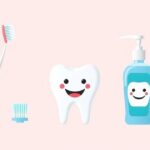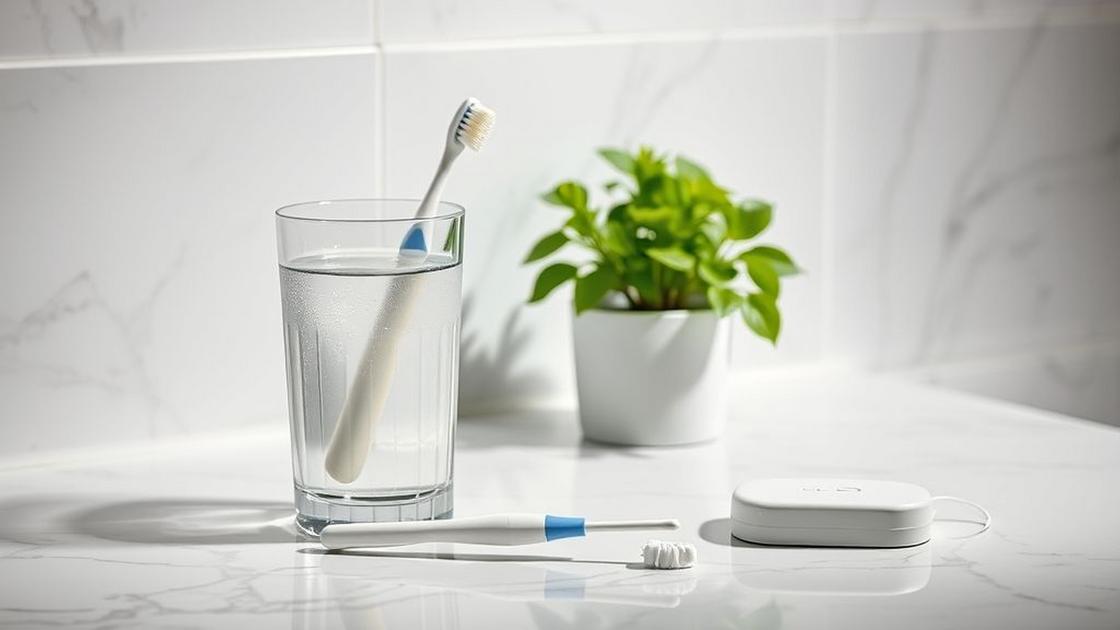Are you worried about your dental health? Many women over 30 face challenges like tooth decay and cavities. Natural ways to protect teeth from cavities can be your answer! Understanding simple, effective methods not only helps maintain a radiant smile but also boosts your confidence. In this article, we will explore various strategies that can integrate easily into your daily routine, empowering you to take control of your oral health.
Understanding Cavities: How They Form
Cavities, also known as dental caries, are areas of decay on the teeth caused by the breakdown of tooth enamel. This breakdown occurs when harmful bacteria in the mouth produce acids that eat away at the tooth’s surface. It often begins with plaque, a sticky film that forms on teeth, especially if not cleaned regularly.
When sugar and starches from food are consumed, they interact with these bacteria, leading to acid production. Over time, this can create holes or cavities in the teeth. Factors like poor oral hygiene, a diet high in sugar, and lack of fluoride contribute greatly to cavity formation.
The Role of Diet in Dental Health
Your diet plays a crucial role in maintaining dental health and warding off cavities. Foods that are high in sugar can increase your risk of getting cavities. Here are some key dietary tips:
- Limit Sugary Snacks: Try to reduce your intake of candies, cookies, and sugary beverages.
- Choose Whole Foods: Opt for fruits, vegetables, whole grains, and lean proteins.
- Include Calcium-Rich Foods: Foods like cheese, yogurt, and leafy greens can help strengthen teeth.
- Stay Away from Acidic Foods: Foods like citrus fruits can erode enamel if overconsumed.
Essential Minerals for Strong Teeth
To keep your teeth strong and resistant to cavities, certain minerals are essential:
- Calcium: Vital for strong enamel and dentin. Aim for dairy products, almonds, and leafy greens.
- Phosphorus: Works with calcium to build strong teeth. Found in fish, meat, and eggs.
- Vitamin D: Helps your body absorb calcium. Sunlight and fortified foods are excellent sources.
- Fluoride: Strengthens tooth enamel and helps prevent cavities. Found in many toothpaste brands and community water supplies.
Natural Remedies for Cavity Prevention
There are several natural approaches to help prevent cavities:
- Green Tea: Contains compounds that can inhibit cavity-causing bacteria.
- Xylitol: A natural sweetener found in many sugar-free gums, it can help reduce cavity-causing bacteria.
- Probiotics: Consuming yogurt with live cultures or supplements can improve oral health.
- Oil Pulling: Swishing oil in your mouth may help reduce bacteria and plaque.
The Benefits of Oil Pulling for Oral Care
Oil pulling involves swishing oil, such as coconut or sesame oil, in your mouth for about 15-20 minutes. This practice is believed to:
- Reduce Bacteria: Oil pulling can help dislodge and remove bacteria in the mouth.
- Improve Oral Hygiene: It may decrease plaque and the risk of gingivitis.
- Freshen Breath: Regular practice can improve overall breath freshness.
Herbal Solutions: Clove Oil and More
Several herbs and natural oils can provide oral care benefits:
- Clove Oil: Contains eugenol, which has antibacterial properties and can relieve toothache.
- Tea Tree Oil: Known for its antibacterial properties, it may aid in reducing plaque.
- Neem: Often called the “toothbrush tree,” it can help reduce oral bacteria.
- Thyme Oil: Has antimicrobial properties that can support oral health.
Homemade Mouth Rinses: Simple Recipes
Creating natural mouth rinses can be beneficial:
- Salt Water Rinse: Mix 1 teaspoon of salt in warm water. This can reduce bacteria and soothe gums.
- Baking Soda Rinse: Combine 1 teaspoon of baking soda in water. This can neutralize acids.
- Vinegar Rinse: Use apple cider vinegar diluted in water for its antibacterial properties. Rinse briefly as a mouthwash.
The Power of Hydration for Healthy Teeth
Staying hydrated is essential for your dental health. Drinking plenty of water helps:
- Wash Away Bacteria: Water helps rinse food particles and bacteria from the mouth.
- Maintain Saliva Production: Saliva protects teeth from decay and neutralizes acids.
- Keep Gums Healthy: Hydration is important for overall gum health.
Regular Dental Check-ups: Your Best Defense
Visiting your dentist regularly—at least twice a year—is crucial for cavity prevention. These check-ups can help:
- Identify Issues Early: Catching cavities and other dental problems early can prevent costly treatments.
- Provide Professional Cleaning: Regular cleanings remove plaque and tartar that brushing alone might miss.
- Offer Personalized Advice: Your dentist can recommend tailored solutions for your oral care routine.
Creating a Consistent Oral Care Routine
Establishing a strong oral care routine is key in preventing cavities. Here are some tips:
- Brush Twice Daily: Use fluoride toothpaste and brush for at least two minutes each time.
- Floss Daily: Flossing removes food particles and plaque between teeth.
- Use Mouthwash: A good mouthwash can help reduce bacteria and freshen breath.
- Limit Snacking: Reduce the frequency of snacks to minimize acid exposure.






